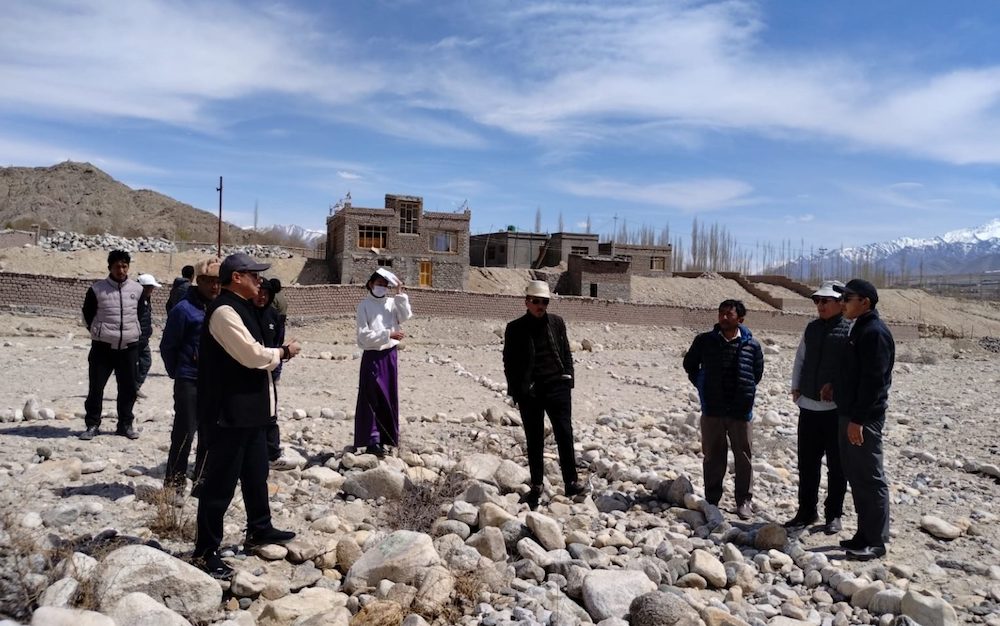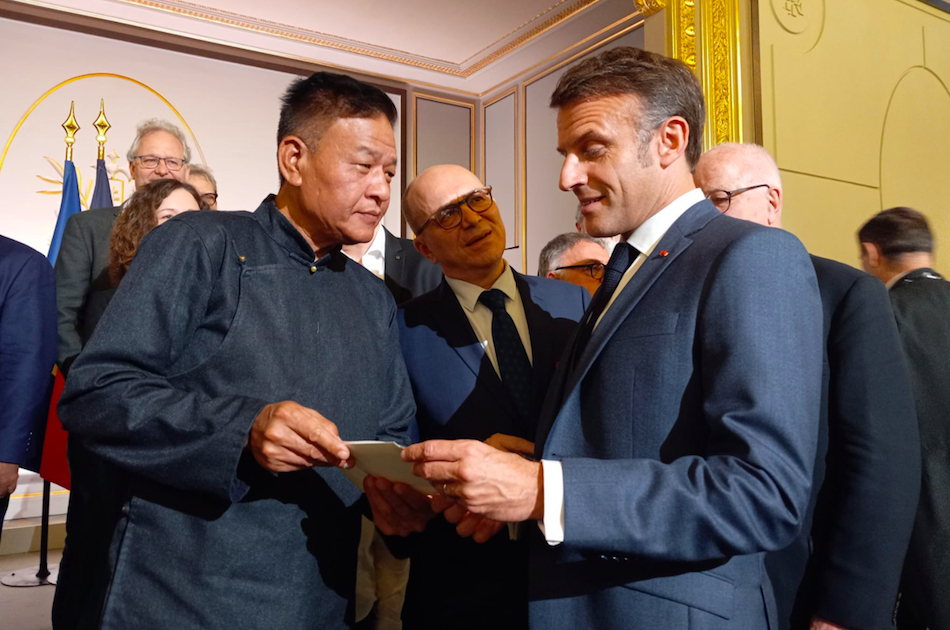The February 2003 edition of the Hong Kong magazine ‘Contend’ (Zheng Ming) featured an article by mainland writer Zhang Yao Jie, commenting on the drama ‘I Will Wait for You in Heaven’. This article challenges one of the most sacrosanct taboos of post 1949-China in that it questions whether China’s invasion of Tibet in 1951 really was a ‘peaceful liberation’. It reflects an emerging acknowledgement among certain Chinese intellectuals that the Tibet issue might be “an unsettled question of history“. The following is a brief summary of the drama on which Zhang is commenting, along with a translation of extracts from his article.
The story is set half a century ago, when the People’s Liberation Army marched into Tibet. Bai Xue Mei, a young female soldier, has fallen in love with the doctor of the transportation team in the Advanced Force unit to which she belongs. However, her team leader, Su Yu Ying, forces her to marry Ao Zhan Jun, the head of the unit. Su Yu Ying instructs Bai that, even though she does not love Ao, it is her duty to obey the team leadership and to sacrifice her love for the doctor as a contribution to the cause of the revolution.
Over the course of fifty years of marriage, Ao becomes an army general. During this time he also dictates all the affairs of his family and interferes in his children’s private lives, never considering their own wishes and freedom. For instance, he forces his elder daughter, Mu Jin, to marry a man who is impotent and forbids her to leave or divorce her husband.
The story concludes after Ao’s death with Bai reading from his will “I will wait for you in heaven”. Although fifty years of unlucky marriage are now over, Bai and her youngest son, the only child who ever dared to oppose his father, begin to extol Ao to the skies. They claim that he has risen to the ‘sacred and glorious heaven of Tibet’, thus, bizarrely, adding a religious dimension to the political nature of the play
Zhang Yao Jie comments on this drama:
“1. Coercion in the name of liberation
“The liberation of Tibet through coercive measures, [which followed] the war where Chinese people wiped out Chinese people 1 fifty years ago, is itself an unsettled question of history. It is worth noting that the army officers and servicemen were not themselves liberated when they were sent to liberate Tibet. Bai Xue Mei marrying against her own will in order to be loyal to her organization illustrates this lack of freedom. Therefore, to liberate the whole country without the liberators’ own liberty can only be coercion, not liberation.
“In the past fifty years, Hong Kong, Taiwan and Macao have enjoyed freedom, democracy and prosperity; have become the centre of the Chinese people’s most advanced civilization without, unlike the mainland, experiencing coercive liberation. This is the counterevidence of so-called ‘liberation’.
“In Chinese society where might is right and where power politics resort to sophistry in self-justification, valid evidence of human rights violations are frequently given away in the Chinese Authorities’ own propaganda. For example, in the drama there was another female soldier called Zhao Yue Ning who was only fourteen years old when she was sent with the army to liberate Tibet. Whether this is according to her own wish or not, it is inhumane, just like the crime of child labour. It also exposes the cruel inhumanity of the Chinese Communist Party’s power politics.
“The transportation team leader herself had tasted the bitterness of arranged marriage so as to obey the orders of her organization, and now she in turn arranges Bai Xue Mei’s marriage. This kind of behaviour in the name of obedience to the organization is a violation of the human rights of both women – the arranger and the arranged. To disguise this inhumanity under the name of ‘firm faith’ in the revolutionary organization, the play depicts a pilgrim team marching beside the army, suggesting that the soldiers and the pilgrims alike have one thing in common – faith. The only difference is that the soldiers’ faith is in Communism, while the pilgrims’ is in the lord Buddha.
“In fact this clearly reveals the true face of Communist theory, that of posing as the only holder of truth and controlling events and people against their wishes, without considering their freedom and human rights.
“2. A typical case of harming others
“The drama was based on a novel by Qiu Shan Shan, who tried to romanticize Ao, a general of the People’s Liberation Army, as a liberator and a man “with heavy responsibility, great trust and value of life”. However, in reality, he and his organization ruled China for fifty years under their dictatorship, but failed to bring any happiness either to their own families or to the ordinary people of China.
“In China, teenage girls working as prostitutes in the cities’ red light areas are invariably from the countryside where peasants have to pay poll tax, housing and land tax, and so on. Even incapacitated people of eighty years of age and infants are accountable for several hundred Yuans of poll tax.
“3. Such a pure land of heaven
“In recent years, it has become fashionable for writers and singers to portray Tibet as a happy, pure land of heaven. However, the writer of this article has been to the Nagqu area of Tibet, and has encountered Tibetan people having to live like animals, in a primitive way, without sufficient food or clothing. Where is the happy pure land of heaven which Ao Zhan Jun and his contemporaries liberated fifty years ago, by sacrificing numerous lives of their own people and of others?
“Looking back over the past 50 years of history, the most serious illnesses of China’s society were caused by the power politics and dictatorship of leaders like Ao Zhan Jun. Only after the ‘reform and open up policy’ [Chinese: kaifang zhengce] was there some limited prosperity in the market economy and some restricted liberty in the cities.
“Those men of letters who are at the beck and call of power politics still write such novels and dramas to go against the trend of history. Such stories wave the banners and shout battle cries for tyrants like Ao Zhan Jun.
“4. We should abolish every form of marshalling people against their will
“Actually, that generation who posed as liberators by marshalling people have not made any magnificent contributions (as described in the drama) and they can never be mentioned in the same breath as [George] Washington who established the free and democratic system of the American people. The author of ‘I Will Wait for You in Heaven’ should know that Chinese society will follow Hong Kong and Taiwan in the road to democracy, civilization and prosperity, not the other way round. The author should focus their efforts on abolishing the marshalling of people against their will, rather than romanticizing it.
“What a shame that this commentary cannot be published in Mainland China and the author of ‘I Will Wait for You in Heaven’ will not hear it. Such prohibition of the freedom of speech and publication has been the main obstacle to achieving democracy in China during the past fifty years.”
1. This is referring to the Chinese civil war and the communist revolution.









